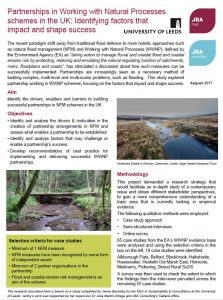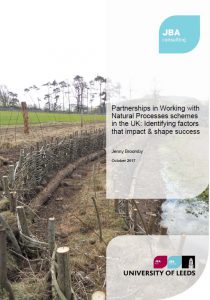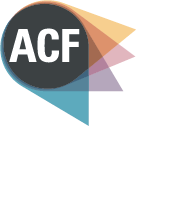Partnerships in Working with Natural Processes schemes in the UK: Identifying factors that impact and shape success
The following resources were developed from the research carried out by Jenny Broomby for her MSc in Sustainability and Consultancy at the University of Leeds.
Project poster
Research report
Recognition of the need for holistic approaches to flood risks management, including concepts such as natural flood management (NFM) and Working with Natural Processes (WwNP) has stimulated a discussion about how such measures can be successfully implemented. Partnerships are increasingly seen as a necessary method of tackling complex, multi-level and multi-scalar problems, such as flooding.
This study explored partnership working in NFM schemes, focusing on the factors that impact and shape success. Whilst the role of location specific context is important to consider, there were a number of commonalities identified across 60 NFM documented case studies which could provide valuable guidance for future NFM partnerships.
In particular, the role of proximity in its many forms (physical, spatial, institutional, social, technological and relational) is crucial to the success of a partnership and can be impacted and determined by factors such as collaboration with local communities, the use of pre-existing relationships, project champions, trial catchments and neutral agents. The application of partnership working to NFM is relatively recent and unique, with little academic research conducted. This work provides some practical guidance to NFM initiatives as well as contributing to this growing area of research.
The full report including a literature review and detailed methodology is available on request, please contact us.



